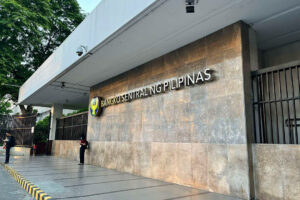
THE BANGKO SENTRAL ng Pilipinas (BSP) has launched the second phase of its credit risk database project, which aims to improve financial inclusion by helping boost lending to small and medium enterprises (SME).
“We already have seen many SME success stories. Each of them inspires us to keep pushing forward with the work we have already started as we end phase one and as we move to phase two of the CRD project,” BSP Governor Eli M. Remolona, Jr. said on Wednesday.
The CRD project was launched in 2020 in partnership with the Japan International Cooperation Agency (JICA). Last year, the BSP introduced the CRD scoring model.
A total of 33 financial institutions in the country have provided data for the project.
“In just four years, we’ve built a large database of SME data and developed a credit scoring tool. This tool is already helping participating financial institutions better assess credit risk, complementing their own methods,” BSP Deputy Governor Bernadette Romulo-Puyat said.
“It’s a step forward in making credit more accessible to SMEs. We are now transitioning this tool into a web-based service, which will make it even easier to use.”
Philippine banks continued to fall short of the mandated lending quota for small businesses at end-September, only extending 4.55% of their total loan portfolio. This was well below the 10% requirement under the Magna Carta for MSMEs.
Under the law, 8% of these loans must go to micro and small enterprises, while 2% must go to medium-sized businesses.
JICA Chief Representative in the Philippines Takema Sakamoto said the second phase of the CRD project will need to ensure sustainability.
“First, in particular, we have to maintain the robustness of the database through creating a secure environment and convenient data provision mechanism for our partner financial institutions,” he said.
He also noted the need to maintain the accuracy of the scoring model through regular, internal and third-party validation as well as the continuous development of institutional capacities.
“However, we are still in the middle or just in the beginning. We still need to do more to promote risk-based lending rather than just relying on conventional, collateral-based lending to enhance financial inclusion of SMEs,” Mr. Sakamoto added.
He also called for the establishment of a permanent body that will “operate and maintain the CRD services in the Philippines.”
“We believe that the principles of confidentiality, open or public access, transparency, and fairness are the foundations of a functional and sustainable CRD-operating entities.” — Luisa Maria Jacinta C. Jocson






Leave a Comment